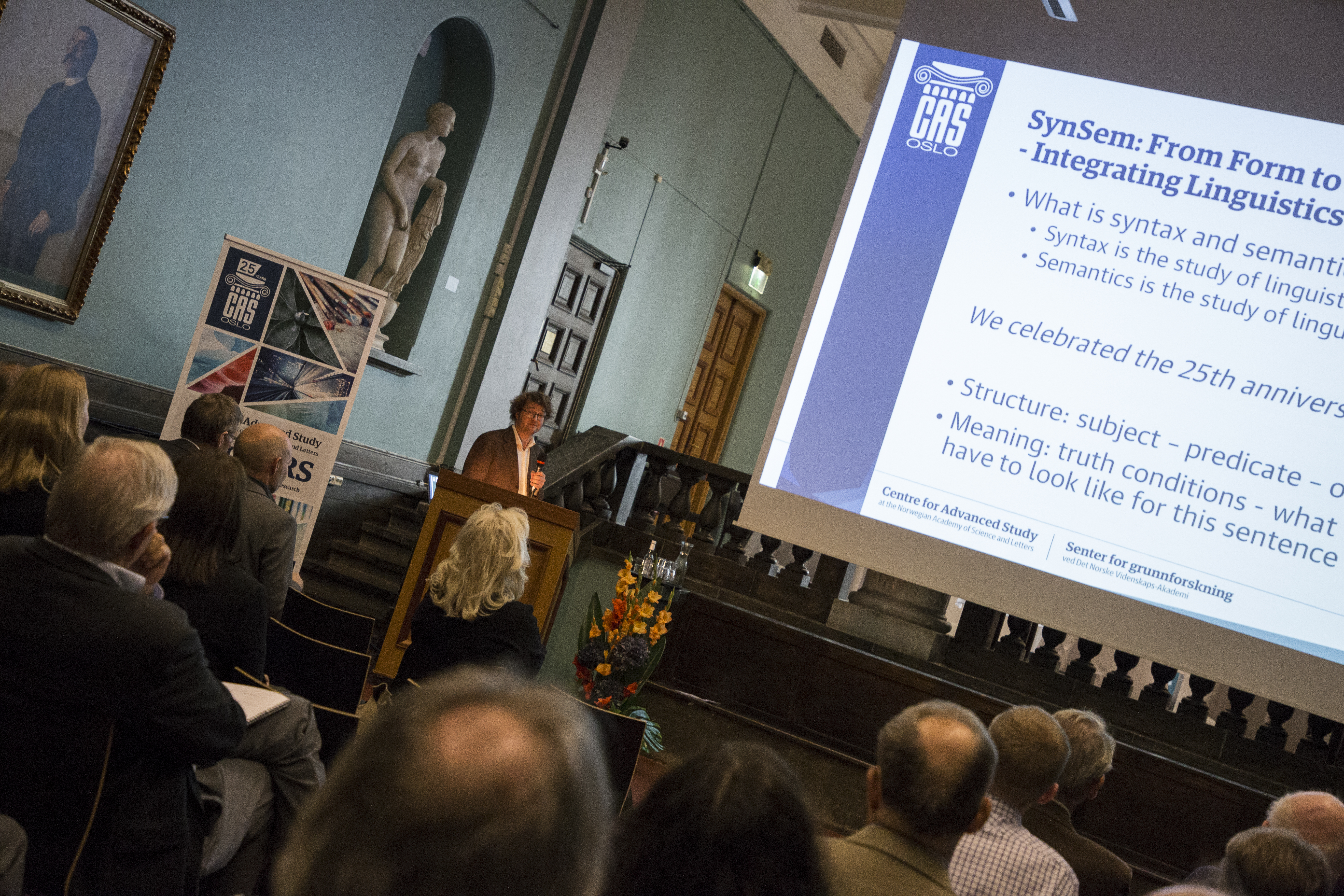Project Update: 'SynSem: From Form to Meaning -- Integrating Linguistics and Computing'

Following a well-deserved winter break, fellows are returning to CAS to continue their research.
We checked in with the members of the project SynSem: From Form to Meaning -- Integrating Linguistics and Computing to learn how their work is going, their thoughts on the stay so far, and their plans for the spring.
Here’s a recap: SynSem: From Form to Meaning -- Integrating Linguistics and Computing aims to bridge the gap between the applied and theoretical camps in the field of formal and computational linguistics. The project is led by Dag Trygve Truslew Haug and Stephan Oepen, professors of classics and informatics, respectively, at the University of Oslo (UiO).
The one-year residency at CAS took shape during a ‘kick-off meeting’ in August, during which Haug and Oepen asked fellows to pitch one to three research questions related to the overarching theme of the project. After spending two days discussing and refining, the scholars divided into semi-overlapping working groups, each tackling one research question.
‘It was a bottom-up, community-driven process,’ Oepen said.
The working groups are tackling a variety of tasks. Some have focused on theory, others on more practical tasks such as software development. Most of the working groups, Haug said, have by now moved from the ‘reading stage’ to the ‘thinking stage.’ Some have even reached the ‘writing stage’ and are working on drafting scholarly articles. The groups all keep one another updated on their progress during weekly project meetings.
‘I’m very satisfied with the structure we settled on,’ Haug said. ‘It’s been a good way to work. I’m participating in working groups with people I’ve never collaborated with before.’
After working mostly within the groups in the fall, the fellows are looking ahead to sharing their findings with other scholars at conferences this spring. By this summer, Oepen said, the scholars hope to have published some of their work in scholarly journals, applied for new sources of funding, and strengthened their collaborations with scholars in Norway and abroad.
‘But it’s not like we’ll be "finished" by this summer,’ Oepen said. ‘I see it as an organic process over the course of several years.’
Be sure to read up on all our coverage of SynSem: From Form to Meaning -- Integrating Linguistics and Computing, and keep an eye on our website for events featuring scholars from the project.
Here’s how other fellows summarised their time at CAS so far:
'The SynSem group at CAS is quite unique in its mix of theoretical and computational linguistics, and this provides an excellent basis for making progress in both areas. I am currently working on a framework for analyzing languages from many different language families, a framework that should be both practically useful and theoretically valid. The opportunity to interact with world-leading researchers representing different backgrounds and perspectives has been invaluable for this work. I have now returned to Uppsala, but I am looking forward to returning to CAS for an international workshop in March.'
'CAS has given me an opportunity to interact with world-leading computational and theoretical linguists who bring perspectives and ways of looking at linguistic problems that are often very different from the way I usually think about things, and this is very stimulating and exciting. The greatest luxury of being at CAS is having the time and opportunity to learn about these new perspectives, and being able to think deeply about fundamental and large-scale new (and old) problems. The communal lunches are also a highlight!'
'Being able to sit and concentrate on a limited number of research questions on a day-to-day basis is always wonderful. And, of course, being able to confer with other scholars who are experts in their fields is invaluable. You’re able to go more in depth with the research questions than you would under normal circumstances.'
Carl Fredrik Schou Straumsheim